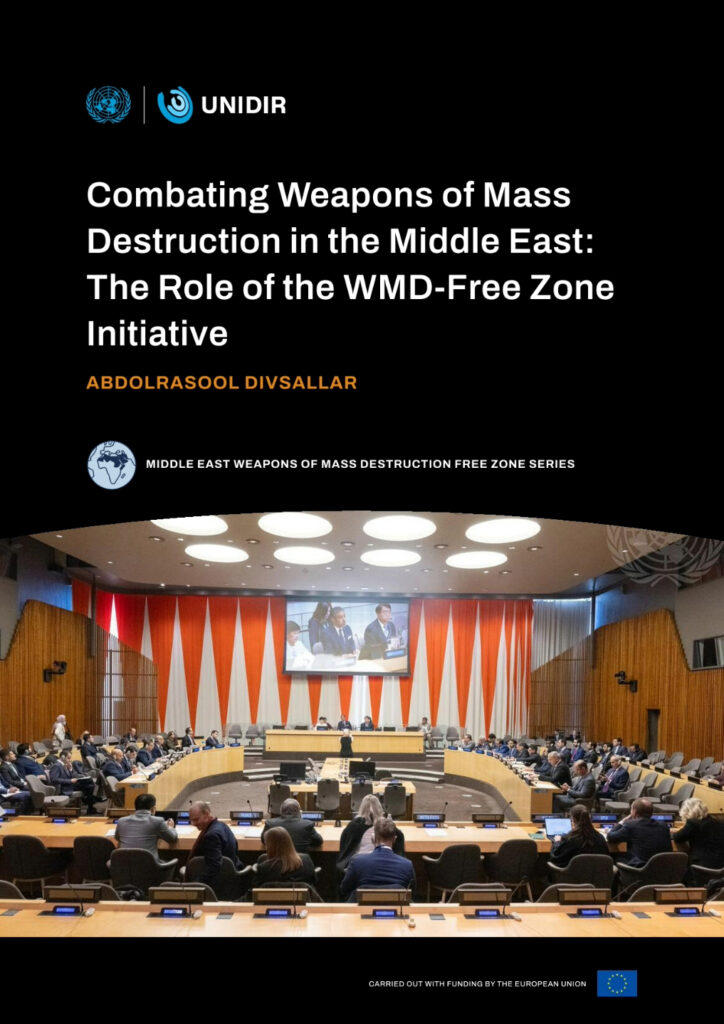As security dynamics in the Middle East change, regional States may also reassess their security policies and defense strategies, including those related to weapons of mass destruction (WMD). This research paper analyses the impact of the evolving regional environment and changes in military dynamics on national threat perceptions, military and security strategies, and consequently assessments of the risks and benefits of acquiring or relinquishing WMD capabilities.
It identifies the possible implications of such adjustments on States’ positions regarding non-proliferation and disarmament initiatives, including the Middle East WMD Free Zone. The paper proposes a number of options to promote and enhance the security value of the Zone, including greater integration of the Zone with ongoing and future regional dialogues. The proposed options aim at strengthening the Zone’s core threat reduction, confidence-building and regional cooperation functions.
Citation: Abdolrasool Divsallar,“Combating Weapons of Mass Destruction in the Middle East: The Role of the WMD-Free Zone Initiative,” (Geneva: UNIDIR, 2025), https://www.doi.org/10.37559/MEWMDFZ/2025/CombatingWMD.
